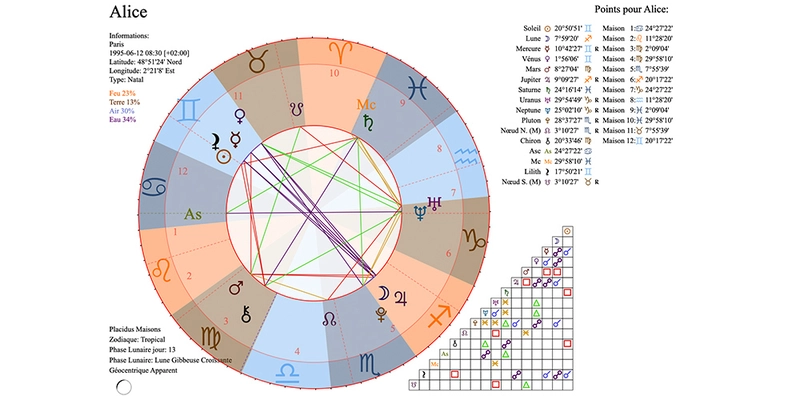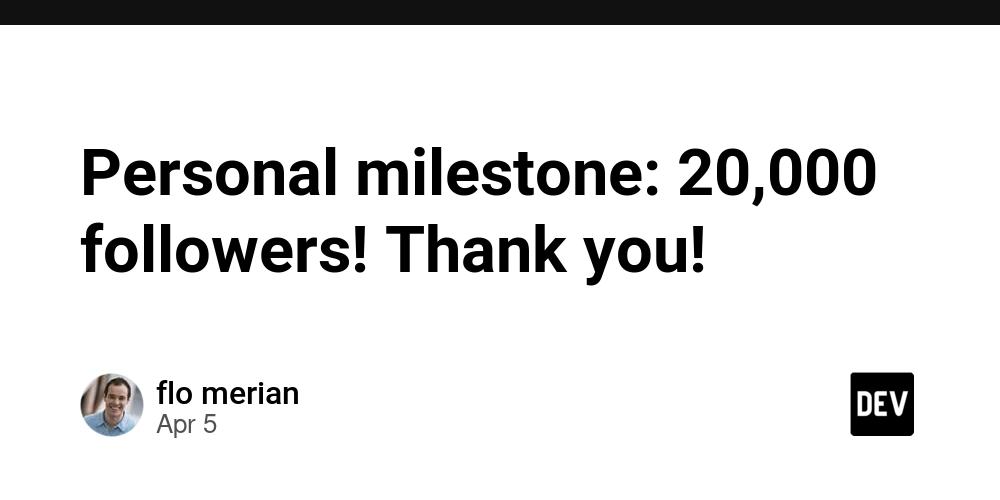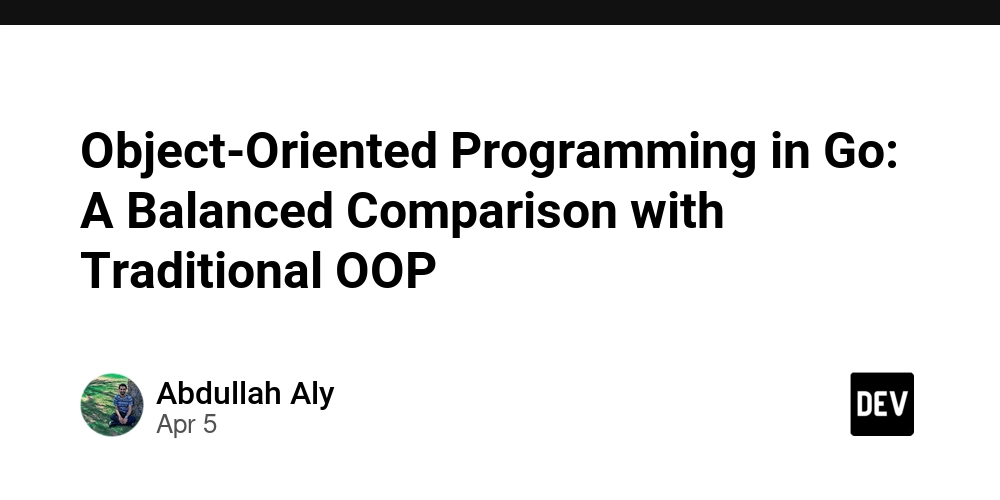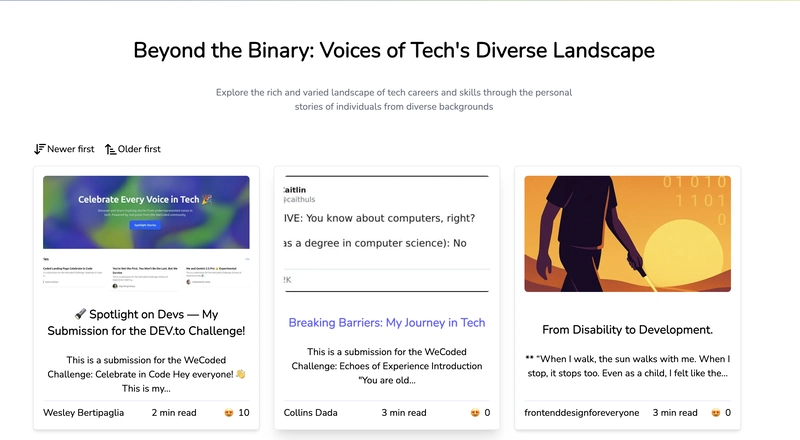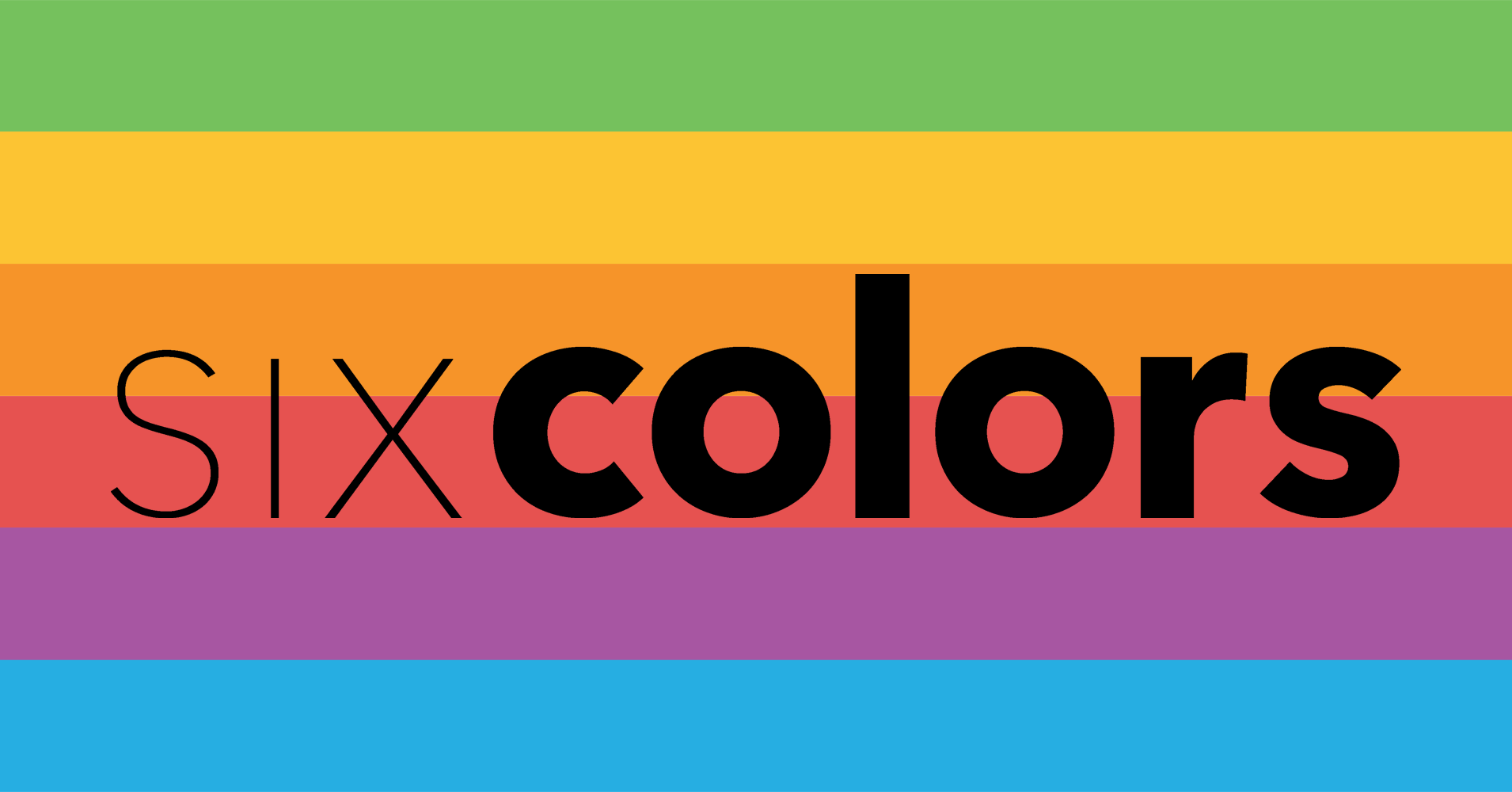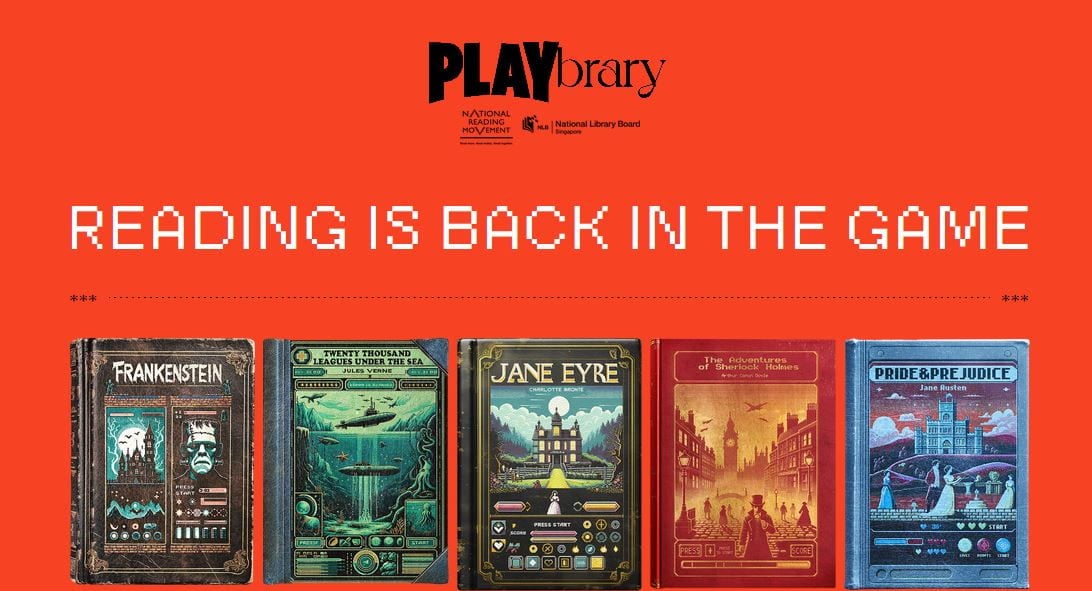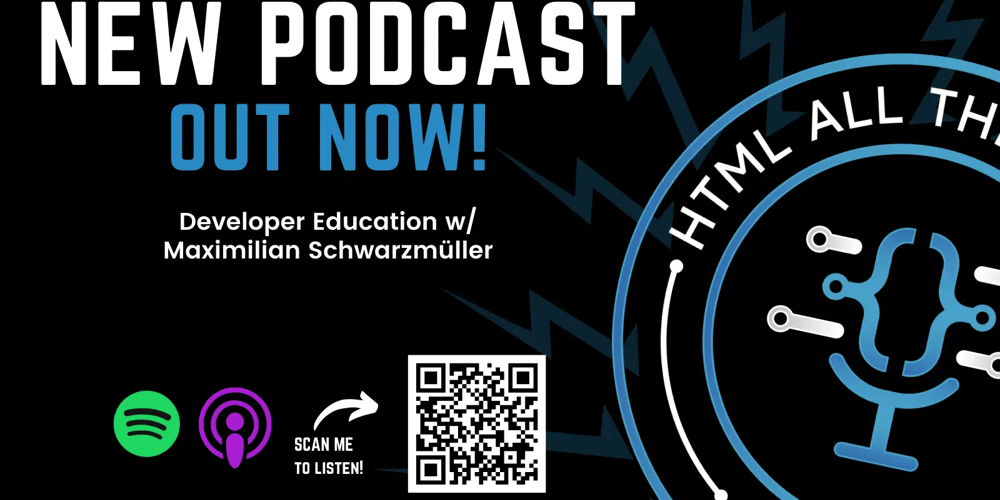Why I Use Flask. And Maybe You Should Too...
Choosing a web framework can feel like picking a side. Do you go for the all-inclusive toolkit with batteries included, or something leaner that lets you chart your own course? For me, after diving deep into building non-trivial applications – like the school exam system I'm currently working on – the choice became clear: Flask. Flask is one of the two main web frameworks for Python, the other being Django. Flask calls itself a "microframework," but don't let the "micro" fool you. It doesn't mean "small capabilities"; it means a small, solid core that doesn't impose decisions on you. This philosophy is precisely why it's become my go-to. Here are five reasons why: Unparalleled Flexibility (The "Choose Your Own Adventure" Framework) This is Flask's superpower. Unlike heavier frameworks that often dictate your database layer (ORM), form handling, or authentication system, Flask steps back. Need a database? Great. For my exam system, integrating SQLAlchemy felt natural and powerful, giving me fine-grained control over my database models (Students, Exams, ExamResult) and relationships. Need robust forms? Flask-WTF integrates seamlessly, allowing for validation and easy rendering, just like we implemented for adding students or handling exam uploads. Flask doesn't bundle these; it makes integrating the best tool for your specific job incredibly easy. Advantage: You build a tailored stack using best-in-class libraries you know and trust, avoiding framework bloat or fighting against pre-made components that don't quite fit. Simplicity and Speed (From Zero to App, Fast) Flask's core API is small and intuitive. Defining routes (@app.route('/view_results')), handling requests, and rendering templates (thanks, Jinja2!) is straightforward. This low barrier to entry means you can get a basic application running remarkably quickly. More importantly, its simplicity makes the codebase easier to understand and debug. There's less "magic" happening behind the scenes, making development feel more direct and controllable. Advantage: Faster prototyping, easier learning curve, and quicker iterations as you add features incrementally (like moving from basic student CRUD to complex result processing). Perfect for Custom Applications Flask shines when you're building something that doesn't fit a standard mold like a generic blog or CMS. Our exam system has specific logic: handling CSV uploads, mapping names to IDs, calculating totals and rankings, and displaying results in a very particular format. Flask doesn't get in the way. Its minimalist nature means the framework's structure doesn't conflict with your application's unique requirements. You spend more time writing your application logic, less time wrestling with the framework. Advantage: Ideal for bespoke web apps, internal tools, or systems with unique business logic where framework overhead is undesirable. API Development Made Easy While our current project involves HTML rendering, Flask is exceptionally well-suited for building APIs. Its simple routing and request/response handling make defining API endpoints clean and logical. Whether you're building a backend for a JavaScript frontend (SPA), a mobile application, or interconnected microservices, Flask provides just enough structure without unnecessary overhead. Advantage: Excellent choice for building lightweight, focused APIs and microservices. A Rich Ecosystem of Extensions "Micro" doesn't mean isolated. Flask has a vibrant ecosystem of well-maintained extensions for almost any functionality you might need – databases (Flask-SQLAlchemy), forms (Flask-WTF), user authentication (Flask-Login, Flask-Security-Too), migrations (Flask-Migrate), and much more. These extensions follow Flask's philosophy: integrate smoothly, provide specific functionality, but stay out of your way otherwise. Advantage: You can start simple and easily add powerful, complex features as your application grows, without sacrificing the core simplicity. Should You Use Flask? If you value control, flexibility, and understanding your stack from the ground up, Flask is a fantastic choice. It empowers you to make the architectural decisions and select the tools that best suit your project. It might require you to explicitly add components that other frameworks include by default, but this deliberate approach leads to cleaner, more understandable, and often more efficient applications. For the freedom it offers and the focused development experience it enables, Flask has earned its place in my toolkit. Give it a try on your next project – you might just find it's the perfect fit you've been looking for.

Choosing a web framework can feel like picking a side. Do you go for the all-inclusive toolkit with batteries included, or something leaner that lets you chart your own course? For me, after diving deep into building non-trivial applications – like the school exam system I'm currently working on – the choice became clear: Flask. Flask is one of the two main web frameworks for Python, the other being Django.
Flask calls itself a "microframework," but don't let the "micro" fool you. It doesn't mean "small capabilities"; it means a small, solid core that doesn't impose decisions on you. This philosophy is precisely why it's become my go-to. Here are five reasons why:
Unparalleled Flexibility (The "Choose Your Own Adventure" Framework)
This is Flask's superpower. Unlike heavier frameworks that often dictate your database layer (ORM), form handling, or authentication system, Flask steps back. Need a database? Great. For my exam system, integrating SQLAlchemy felt natural and powerful, giving me fine-grained control over my database models (Students, Exams, ExamResult) and relationships. Need robust forms? Flask-WTF integrates seamlessly, allowing for validation and easy rendering, just like we implemented for adding students or handling exam uploads. Flask doesn't bundle these; it makes integrating the best tool for your specific job incredibly easy.
Advantage: You build a tailored stack using best-in-class libraries you know and trust, avoiding framework bloat or fighting against pre-made components that don't quite fit.
Simplicity and Speed (From Zero to App, Fast)
Flask's core API is small and intuitive. Defining routes (@app.route('/view_results')), handling requests, and rendering templates (thanks, Jinja2!) is straightforward. This low barrier to entry means you can get a basic application running remarkably quickly. More importantly, its simplicity makes the codebase easier to understand and debug. There's less "magic" happening behind the scenes, making development feel more direct and controllable.
Advantage: Faster prototyping, easier learning curve, and quicker iterations as you add features incrementally (like moving from basic student CRUD to complex result processing).
Perfect for Custom Applications
Flask shines when you're building something that doesn't fit a standard mold like a generic blog or CMS. Our exam system has specific logic: handling CSV uploads, mapping names to IDs, calculating totals and rankings, and displaying results in a very particular format. Flask doesn't get in the way. Its minimalist nature means the framework's structure doesn't conflict with your application's unique requirements. You spend more time writing your application logic, less time wrestling with the framework.
Advantage: Ideal for bespoke web apps, internal tools, or systems with unique business logic where framework overhead is undesirable.
API Development Made Easy
While our current project involves HTML rendering, Flask is exceptionally well-suited for building APIs. Its simple routing and request/response handling make defining API endpoints clean and logical. Whether you're building a backend for a JavaScript frontend (SPA), a mobile application, or interconnected microservices, Flask provides just enough structure without unnecessary overhead.
Advantage: Excellent choice for building lightweight, focused APIs and microservices.
A Rich Ecosystem of Extensions
"Micro" doesn't mean isolated. Flask has a vibrant ecosystem of well-maintained extensions for almost any functionality you might need – databases (Flask-SQLAlchemy), forms (Flask-WTF), user authentication (Flask-Login, Flask-Security-Too), migrations (Flask-Migrate), and much more. These extensions follow Flask's philosophy: integrate smoothly, provide specific functionality, but stay out of your way otherwise.
Advantage: You can start simple and easily add powerful, complex features as your application grows, without sacrificing the core simplicity.
Should You Use Flask?
If you value control, flexibility, and understanding your stack from the ground up, Flask is a fantastic choice. It empowers you to make the architectural decisions and select the tools that best suit your project. It might require you to explicitly add components that other frameworks include by default, but this deliberate approach leads to cleaner, more understandable, and often more efficient applications.
For the freedom it offers and the focused development experience it enables, Flask has earned its place in my toolkit. Give it a try on your next project – you might just find it's the perfect fit you've been looking for.













